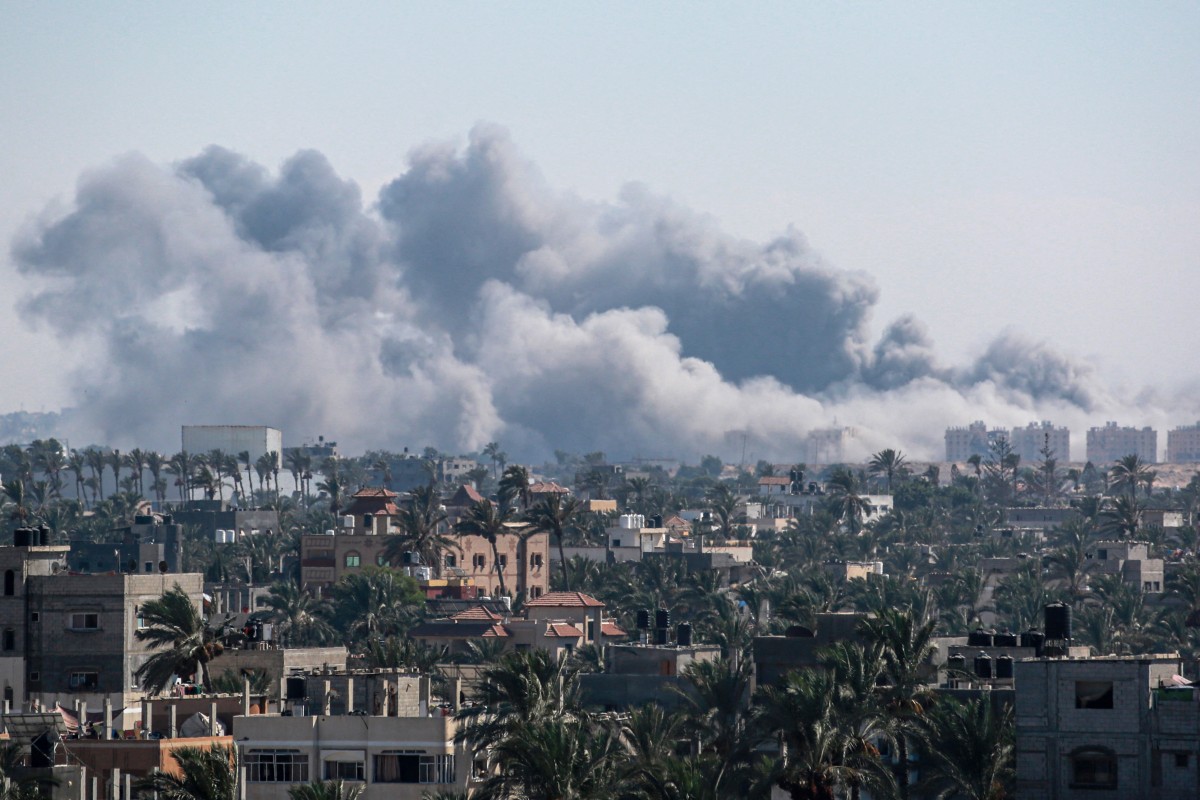Doha, Qatar – Hamas said Friday the Palestinian group rejected “new conditions” in a Gaza ceasefire plan the United States presented after two days of talks with Israeli negotiators in Qatar.
As international pressure mounted for a ceasefire after more than 10 months of war between Israel and Hamas in the Gaza Strip, US President Joe Biden said: “We are closer than we have ever been.”
US Secretary of State Antony Blinken is to travel to Israel this weekend to advance the latest proposal, the State Department said.
“Secretary Blinken will underscore the critical need for all parties in the region to avoid escalation or any other actions that could undermine the ability to finalise an agreement,” it said.
Washington has joined its European allies in pushing for a swift ceasefire in Gaza since the July 31 killing of Hamas political leader Ismail Haniyeh in an attack in Iran blamed on Israel prompted threats of retaliation and fears of a wider Middle East war.
Egyptian, Qatari and US mediators have been seeking to finalize details of a framework initially outlined by Biden in May, and which he said Israel had proposed.
But months of talks have so far failed to pin down the details of a truce and hostage release deal.
The mediators said that the two days of talks in Doha were “serious and constructive”.
In a joint statement, they said the United States had presented a “bridging proposal” that sought to secure a rapid deal at a new round of talks in Cairo next week.
Hamas swiftly announced its opposition to what it called “new conditions” from Israel in the latest plan.
Israeli Prime Minister Benjamin Netanyahu called on the mediators to put “pressure” on Hamas “to accept the May 27 principles”, referring to Biden’s framework.
Western ally Jordan however put the blame squarely on Netanyahu for blocking a deal, with Foreign Minister Ayman Safadi urging pressure “by everyone who wishes to see this through to completion”.
‘Impunity’
An informed source told AFP that the conditions Hamas objected to included keeping Israeli troops on Gaza’s border with Egypt, and terms related to the release Palestinian captives from Israeli jails in exchange for Israeli hostages.
Diplomatic pressure on Israel to agree a truce has increased in recent weeks.
British Foreign Secretary David Lammy and his French counterpart Stephane Sejourne held talks in Israel Friday to urge a Gaza ceasefire.
Israeli Foreign Minister Israel Katz told his visiting counterparts he expects foreign support “in attacking” Iran if it strikes Israel in revenge for Haniyeh’s killing.
Sejourne replied that it would be “inappropriate” to discuss responding to any attack while diplomacy is in high gear to stop it happening.
A senior US official, speaking to reporters on condition of anonymity, said Iran would face “cataclysmic” consequences if it strikes Israel.
A deadly attack by Israeli settlers in the occupied West Bank late Thursday drew international condemnation and calls for sanctions, including against government ministers, over the upsurge in settler violence against Palestinians particularly since the Gaza war began.
The Israeli military said “dozens of Israeli civilians, some of them masked”, entered the village of Jit, west of Nablus, and “set fire to vehicles and structures in the area, hurled rocks and Molotov cocktails”. A Palestinian man was shot dead.
The West Bank-based Palestinian foreign ministry described the attack as “organised state terrorism”.
The European Union’s top diplomat Josep Borrell said he would propose sanctions against Israeli government “enablers” of Jewish settler violence.
“Day after day, in an almost total impunity, Israeli settlers fuel violence in the occupied West Bank,” Borrell posted on X.
“The Israeli government must stop these unacceptable actions immediately.”
Israel’s far-right Finance Minister Bezalel Smotrich, a proponent of West Bank settlements, was quick to join other Israeli leaders in condemning Thursday’s attack by “criminals”.
First polio case recorded
On Thursday, the toll from Israel’s military campaign in Gaza topped 40,000, according to the health ministry in Hamas-run Gaza, which does not provide a breakdown of civilian and fighter casualties.
The war has crippled the besieged territory’s healthcare infrastructure, prompting repeated warnings from the World Health Organization of the potential for outbreaks of preventable diseases.
On Friday, the Palestinian health ministry reported an unvaccinated 10-month-old child in Gaza had been diagnosed with polio, the territory’s first case in 25 years, according to the WHO.
The announcement came hours after UN chief Antonio Guterres called for two seven-day breaks in the Gaza war to vaccinate more than 640,000 children against type 2 poliovirus, which was first detected in the territory’s wastewater in June.
As truce talks were underway, thousands of civilians were on the move again inside the Palestinian territory after the Israeli military issued new evacuation orders warning of imminent military action.
“During each round of negotiations, they exert pressure by forcing evacuations and committing massacres,” Issa Murad, a Gazan displaced to Deir al-Balah, said of the Israeli forces.








